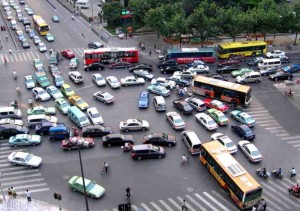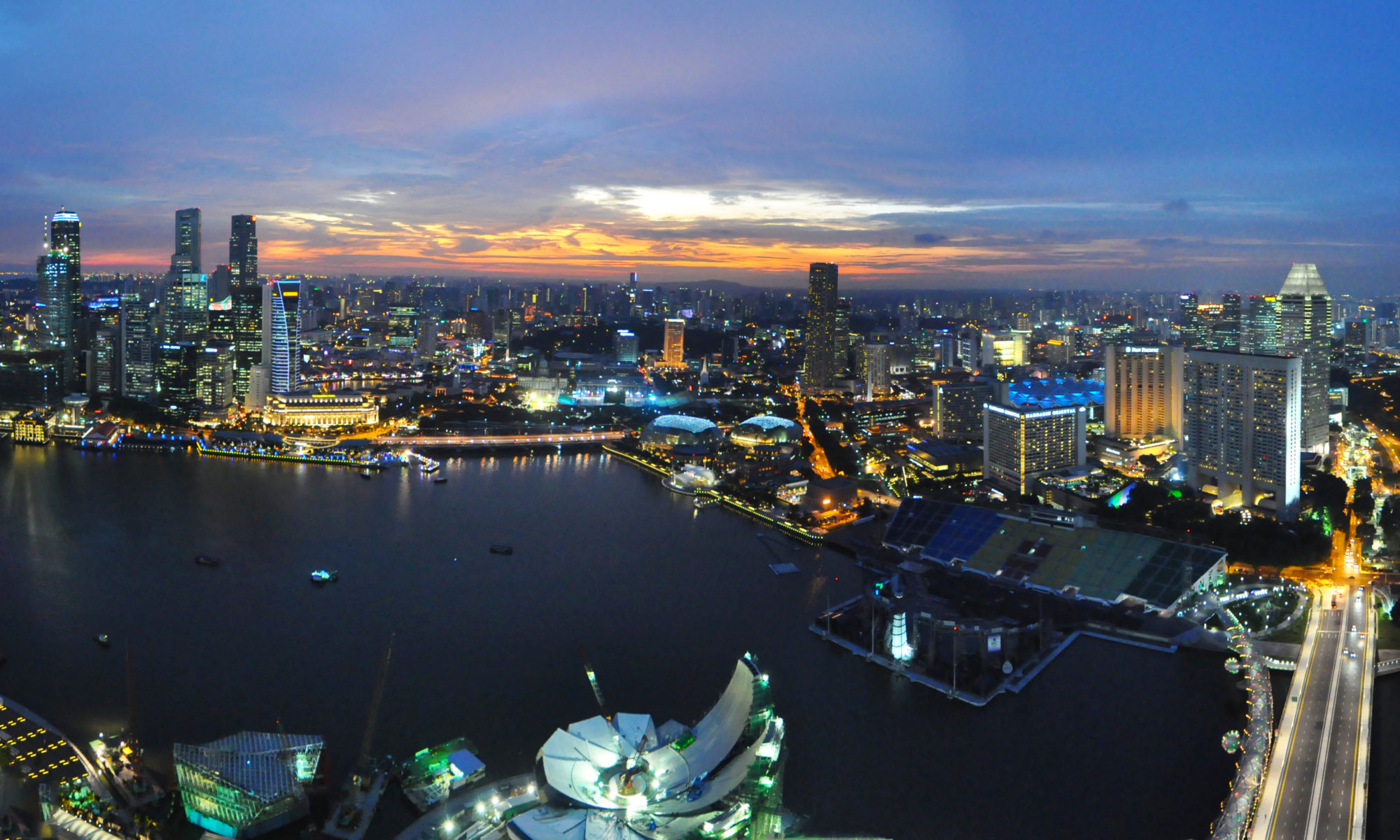Americans make jokes about Chinese drivers*. I never knew if an American joking about a Chinese driver was an astute observer or a racist. It can be tough to tell these things apart with racial, national, or cultural generalizations. But I admit in California I surely saw my saw my share of strange behaviors initiated by Chinese drivers: stopping on highway on-ramps, backing up on the highway to turn off an an exit that was accidentally passed, etc. As a open-minded Californian I resisted the urge to associate these behaviors with any race or culture. And then I visited China.
 When I moved to Singapore I found myself visiting China for business regularly. As others that have done the same will testify, the roads there are absolutely fucking insane. In Shanghai I saw a woman slam on her brakes while in the fast lane of a highway. Her tires locked up, smoke billowing out from under the car, the vehicle leaning forward and sliding slightly on the friction of melted rubber, all so she use an exit she was passing. After stopping she gingerly turned the car 90 degrees to the side and idled across the highway through honking 100 KPH traffic.
When I moved to Singapore I found myself visiting China for business regularly. As others that have done the same will testify, the roads there are absolutely fucking insane. In Shanghai I saw a woman slam on her brakes while in the fast lane of a highway. Her tires locked up, smoke billowing out from under the car, the vehicle leaning forward and sliding slightly on the friction of melted rubber, all so she use an exit she was passing. After stopping she gingerly turned the car 90 degrees to the side and idled across the highway through honking 100 KPH traffic.
Taxi drivers entering roads in China usually do not even look to their sides before doing so. They act on the faith that another driver that might hit them will raise alarm by honking to call attention to the extreme danger they are about to put themselves in. God knows what happens when horns fail.
But it was in Singapore that I noticed an even stranger phenomenon. I felt the locals, who are predominately of Chinese ancestry although rarely of Chinese nationality, had similar problems walking on sidewalks. Singaporeans (and residents of Hong Kong, where I currently live) walk with no apparent system to guide them. Westerners, for instance, generally walk on one side of the sidewalk. Usually the same side on which we drive. Westerners see someone approaching in a hallway and through a subtle, implicit system our eyes convey a plan to ensure we pass each other without collision and with at least a foot between us. And this elegant dance happens automatically and without thought every day on sidewalks, in malls, and in offices.
Similarly, westerners do not just stop walking in a crowded thoroughfare, blocking traffic like a boulder plugging a small creek, without considering others behind us. Westerners often step to the side when they stop.
None of these rules appear to exist in Singapore, Hong Kong, and certainly China.
But the strangest thing dawned on me recently. That maybe there is an underlying rule to Chinese and nearby countries’ traffic flow that I simply didn’t recognize. Something invisible to me but as internal and effortless to locals as the western traffic flow is to westerners. Perhaps I could not see it because my internal value system mismatched the values of the Chinese. As I opened my mind to this possibility I saw underlying values and patterns that might explain the “strangeness” of traffic in some east Asian countries.
Firstly, my friend James (who grew up in southern China) once explained to me that the Chinese are masters at adaptability. Americans that learn about the Chinese economy are confounded by their use of the term “communist”. Step into the any street in any city in China and you will see the most hyperactive free market systems in the world. Every street vendor is hustling their wares and bargaining aggressively. Even professionals working in large, safe corporations are scheming for rich private enterprise. The conflict between capitalism and communism is a non-issue for the Chinese. As James would say, “Scott, you have to understand that we are adaptable. There is no rule that can describe China.”
Second, the Chinese–indeed, most east Asians–venerate the elderly. When an Asian hits the age of 70 it is time to cash in on a life’s time of work. The community will support and grant the expectations of elderly locals. Everyone yields good seats in the bus and trains. Children contribute money to parents to ensure their health and happiness and even share a home with their parents, if needed. And everyone moves aside when an octogenarian walks anywhere.
Take these two values together and you can quickly understand pedestrian traffic management in China. The rule is this: just walk anywhere you want, in any direction, and deal with a possible collision as needed. At the moment of possible collision, bend about halfway off your path and you may assume the other person will bend halfway, as well. This is the adaptability of the Chinese. However, if the other person is much older than you, expect to deviate greatly off your path in deference to them. If they are over 80, get the fuck out of the person’s way.
Understanding these values allowed me to appreciate one seemingly arbitrary and inexplicable behavior on sidewalks and in malls. Specifically I am talking abut the 80 year-old Chinese woman that will bowl over a younger, bigger white person like that person is invisible. Ask any westerner living in Asia and they’ll tell you of these gray-haired Chinese bulldozers.
Now, back to driving, and the senselessness of recent immigrants to the states and craziness of Shanghai highways. It appears the western system of pedestrian traffic management ported very well to automobile traffic. The Chinese system–diverge at the last minute with special deference to age–translates poorly to driving. You can see this in Beijing and Shanghai and occasionally on the roads in California. But I no longer think of this as failure to drive, but perhaps a failure to understand a deep cultural difference between China and America. I certainly have been guilty for years of not understanding my own cultural difference to my host countries.
Footnote
(*) As an American I venture into the touchy subject of national/cultural generalizations with great trepidation. America has a long, sad history on race relations and we work constantly to erase the stain. It is important for me to state that my observations are national and cultural in origin, not racial or ancestral. A boy born to Chinese parents in America will be raised closer to the values of the western system than the Asian ones I describe above. It is unfortunate that some might judge him by appearance rather than the culture that has shaped him.
